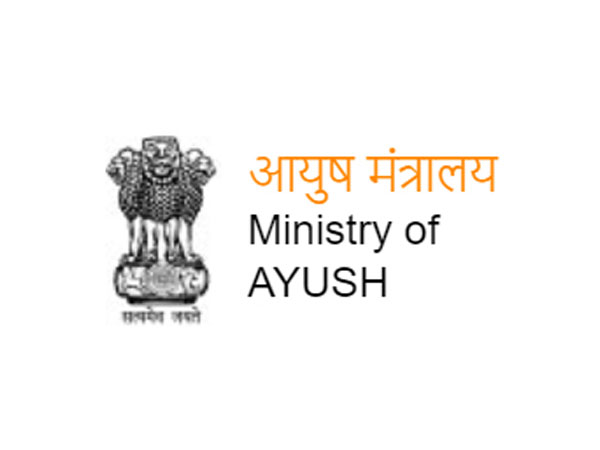Experts Discuss Ayush Innovations, Global Standards, and Intellectual Property Protection in Push to Advance India's Traditional Medicine Systems
In his keynote address, Prof. Kotecha emphasized the significance of integrating research and education in the field of Ayurveda to drive the agenda on intellectual property rights (IPR) within traditional medicine.

- Country:
- India
A landmark Round Table Conference on "Intellectual Property, Regulatory Framework, and Commercialization Aspects in Traditional Knowledge of Ayush Systems" was held today, bringing together leading academics, policymakers, and industry experts to address the challenges and opportunities in safeguarding traditional knowledge within Ayush systems. Organized by the Office of the Controller General of Patents, Designs, and Trade Marks (CGPDTM), in collaboration with the School of Biotechnology at Jawaharlal Nehru University (JNU) and the National Institute of Ayurveda (NIA) in Jaipur, the event focused on the future of Ayush research, intellectual property rights (IPR), and global integration.
Key Dignitaries and Focus Areas
The conference was inaugurated by Vaidya Rajesh Kotecha, Secretary of the Ministry of Ayush, who served as the Chief Guest. Joining him were Prof. (Vaidya) Kartar Singh Dhiman, Vice Chancellor of Shri Krishna Ayush University, Haryana, and other distinguished guests, including Prof. Anupam Srivastava from NIA and Prof. Rupesh Chaturvedi from JNU’s School of Biotechnology.
In his keynote address, Prof. Kotecha emphasized the significance of integrating research and education in the field of Ayurveda to drive the agenda on intellectual property rights (IPR) within traditional medicine. He lauded India’s collaborative efforts with the World Health Organization (WHO) to establish global standards for traditional medicine and its contribution to the rapid growth of the Indian Ayush manufacturing sector, now a major player in the global market.
“The evolving digital ecosystem and the generation of scientific evidence are crucial for advancing the Indian system of medicine,” said Prof. Kotecha. He noted the role of the Ayurveda Biology Program at JNU in modernizing Ayurveda research and stressed the importance of academia-industry collaboration to enhance Ayush's global competitiveness.
Collaboration and Innovation Key to Global Growth
Prof. (Vaidya) Kartar Singh Dhiman, the Guest of Honor, called for greater synergy among all stakeholders in the Ayush ecosystem. He suggested that molecular research into traditional medicine, along with the development of Ayush-specific research tools, is critical to addressing the sector’s challenges.
He also proposed that IPR be made a core component of postgraduate curricula in Ayush institutions. "A molecular understanding of traditional medicine and developing research tools specific to Ayush systems are essential. Moreover, we must prepare future scholars for IPR challenges by integrating it into their academic training," Prof. Dhiman remarked.
Protection Against Biopiracy
Prof. Anupam Srivastava discussed the evolution of Ayush systems and the creation of the Traditional Knowledge Digital Library (TKDL) to protect India’s heritage from biopiracy. He suggested a specialized six-month IPR course for Ayush professionals to address current gaps in intellectual property awareness and help Ayush experts navigate the complex world of patent laws and global commercialization strategies.
Bridging Research Gaps and Commercialization
Highlighting the need for innovation and protection of traditional knowledge, Prof. Rupesh Chaturvedi stressed that bridging research gaps is key to facilitating the commercialization of Ayush products. He called for the resolution of proprietary issues surrounding traditional medicine through dedicated research and innovation, ensuring that Ayush knowledge is protected while becoming part of the global healthcare ecosystem.
Panel Discussions and Future Directions
The event featured multiple panel discussions that brought together thought leaders from Ayurveda, Unani, and Homeopathy, addressing intellectual property creation, regulatory frameworks, commercialization strategies, and benefit sharing in Ayush innovations. Experts shared insights on crafting robust policy frameworks and fostering global collaborations to promote India’s traditional medicine systems.
Conclusion and Global Vision
The conference concluded with a shared vision for the future of Ayush systems, emphasizing the need for strengthened research, policy, and educational initiatives. The discussions laid the groundwork for enhanced international collaboration and innovation, aimed at integrating Ayush more firmly into the global healthcare landscape.
With the Ministry of Ayush committed to expanding the role of traditional medicine in global healthcare, this conference has set the stage for further advancements in research, commercialization, and intellectual property protection. The dialogue initiated here is expected to catalyze significant progress in the coming years, as India continues to assert its leadership in traditional medicine on the global stage.










